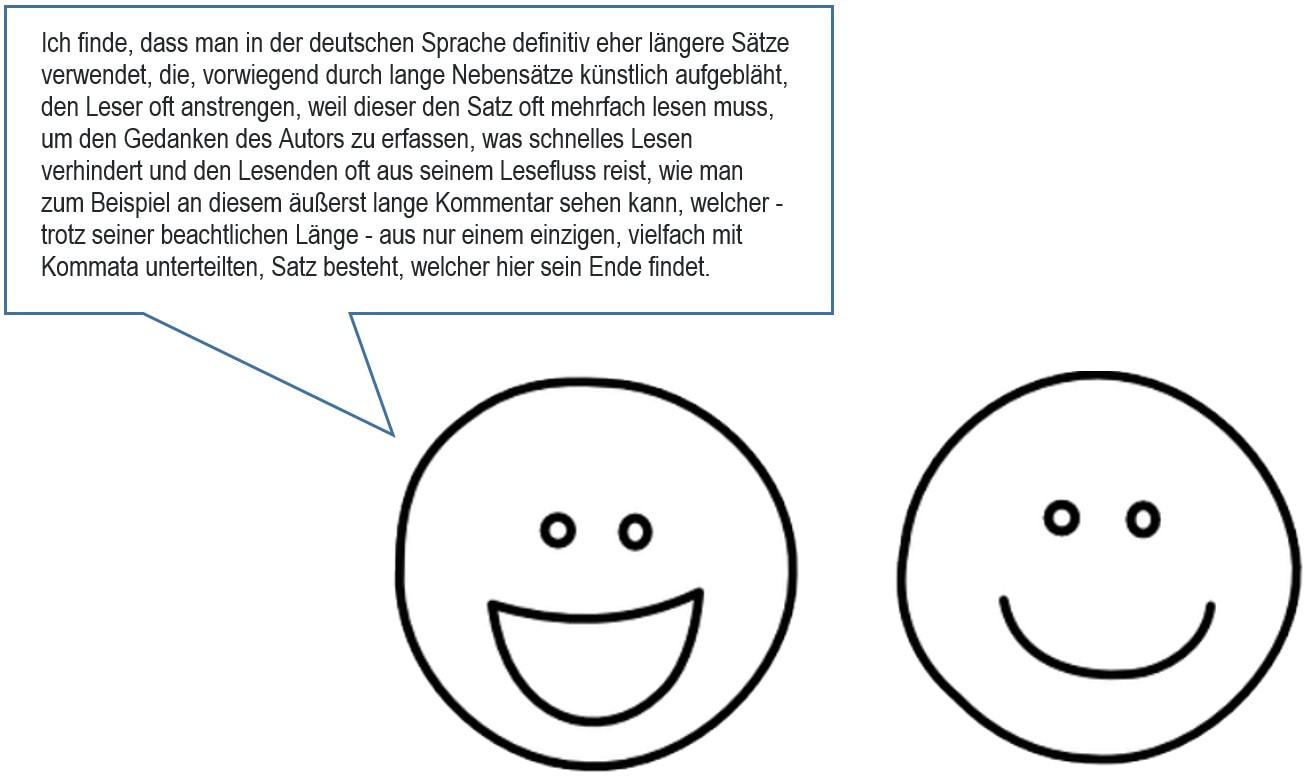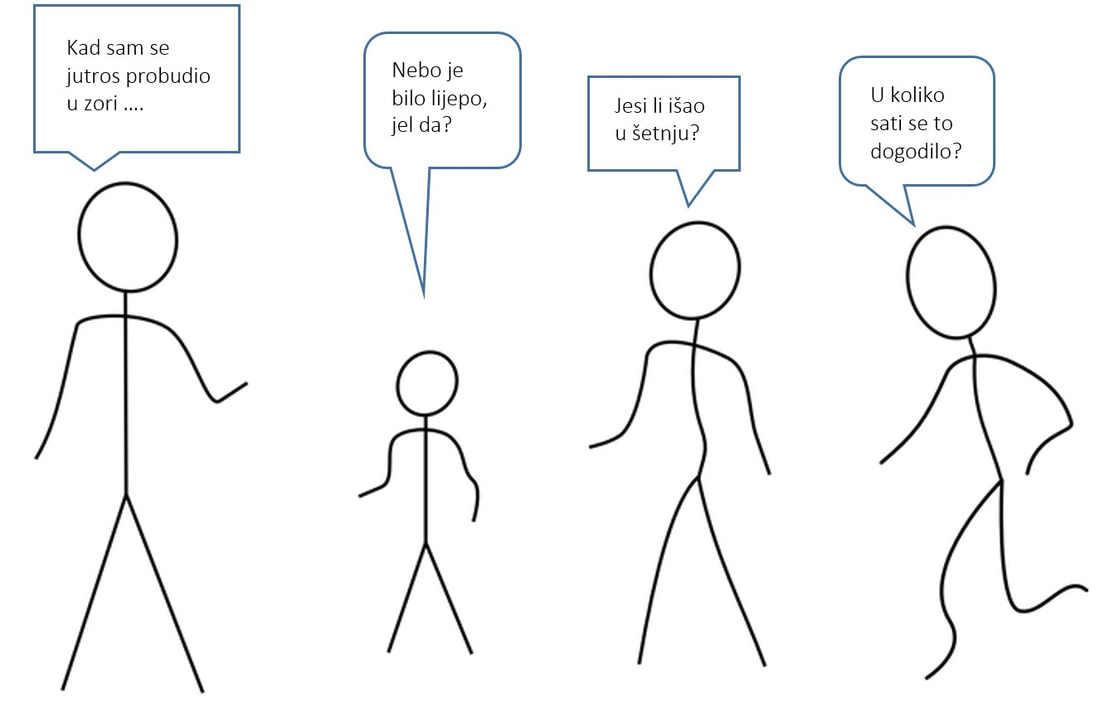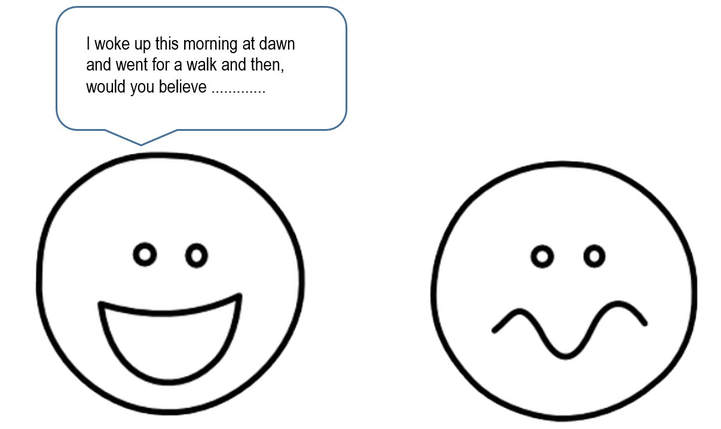Miscellaneous items #003Can language influence behaviour?
When former Croatian President Kolinda Grabar-Kitarović was in Australia, she gave a talk at Macquarie University, Sydney, which has Croatian language programs.
Amongst other things, she talked about the importance of language in defining culture. She referred, as an example, to a belief that German people do not interrupt each during conversation. She attributed this to the fact that German sentences have the verb at the end of each sentence, so listeners don't really know what the talker is saying until they finish their sentence. Is that really true? It makes some sort of sense, I guess. On the other hand, word order in Croatian sentences is rather flexible, so conversational behaviour is quite different.
I guess that means that everybody is listening to everybody at the same time? Remarkable!
And Aussies? Well they seem to behave during conversations somewhere intermediate between the behaviours of Germans and Croatians.
In Australia, whoever is talking wants the listener to behave like a German. But they don’t!
I wonder if Croatians who go to live in Germany change their behaviour after learning the local language?
And do Germans change their behaviour when they are learning Croatian? Pitam se.
Getting around
You can browse or search this website in the following ways:
AHA! Learning Croatian with Bob
Correspondence: bobby.bucat@gmail.com
1 Comment
|



